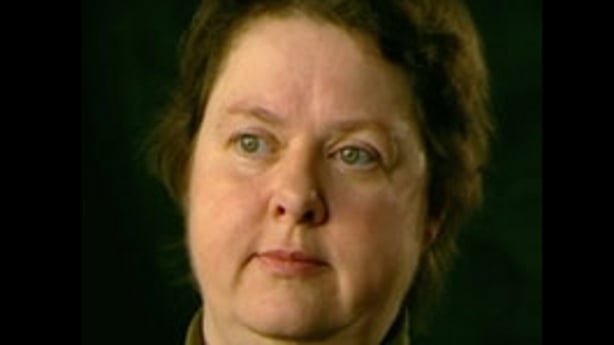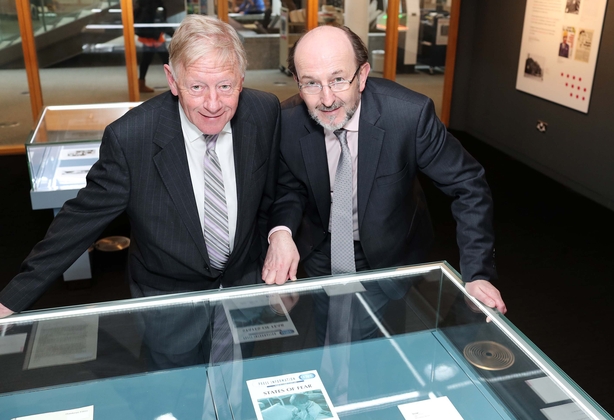Dublin City University has launched an exhibition on the award-winning journalism of the late Mary Raftery.
The event coincides with the 20th anniversary of the airing by RTÉ television of her three-part documentary series, States of Fear.
The broadcasts prompted the then taoiseach, Bertie Ahern, to issue an unprecedented apology to survivors of institutional child abuse, primarily in Catholic-run industrial schools.
Mary Raftery was 54 when she died following an illness in 2012. But already, she had won the accolade of the most influential journalist of the previous quarter century.
Mary Raftery: Revealing A System Of Abuse

States of Fear exposed abuse - physical, emotional and sexual - in state-funded children's residential institutions which had closed over the previous thirty years.
It told the stories of individuals who had only once gone public in the drama documentary Dear Daughter, which had also been screened by RTÉ, three years earlier. The late Louis Lentin's programme dwelt on former residents' allegations about a regime of harsh discipline employed by some Mercy Sisters inside Dublin's Goldenbridge Orphanage.
Following States of Fear, Bertie Ahern apologised on behalf of the Irish people to all former child residents of industrial schools, the notorious Daingean Reformatory in Co Offaly and some special schools, for example the one for the deaf in the Dublin suburb of Cabra.
His government also announced the establishment of a commission of inquiry to review the institutional abuse of children. At the insistence of survivors and their families who threatened to boycott the commission, a redress board was established to compensate them.
The Ryan commission's report, authored by Justice Seán Ryan, was published in May 2009 and went further than Raftery's programme because it identified what the broadcast could only hint at: systemic abuse in the industrial schools and in Daingean - including the sexual abuse of boys in institutions like Artane industrial school which had been run by the Christian Brothers.
The exhibition also features her subsequent documentary, Cardinal Secrets (RTÉ, 2002), which resulted in another commission of inquiry, this time into the Catholic Archdiocese of Dublin.

DCU says the exhibition examines Raftery's early journalism in magazines such as In Dublin and Magill in which she tackled a range of issues from planning to property speculation, the drugs trade and environmental pollution. In addition, it highlights her work at RTÉ, for which she was named as the "Woman Journalist of the Year" in 1985 for her documentary on the mistreatment of patients in Irish psychiatric hospitals.
The university has also unveiled a new journalism industry award, The Mary Raftery Prize, which will be awarded annually to an individual or small team responsible for journalistic work produced on the island of Ireland which, in the view of the judges, combines the rigorous analysis and commitment to social justice which characterised Mary Raftery's journalism and resulted in a significant impact on society.
The prize is funded by a bequest from the Mary Raftery Journalism Fund, and is sponsored by the Broadcasting Authority of Ireland (BAI). The first prize will be awarded in 2020 for work produced in 2019. It will be administered by DCU's School of Communications with an independent panel of judges selecting the winner.
Commenting on the prize, the former chair of the Mary Raftery Journalism Fund, David Waddell - who was married to Ms Raftery - said: "The family and friends of Mary Raftery look forward to working with DCU and the BAI to continue outreach and activities that will advocate for, and support, quality, investigative journalism."
The exhibition at DCU's O'Reilly Library at the Glasnevin Campus is free of charge and open to the public during normal library opening hours.
We need your consent to load this rte-player contentWe use rte-player to manage extra content that can set cookies on your device and collect data about your activity. Please review their details and accept them to load the content.Manage Preferences

